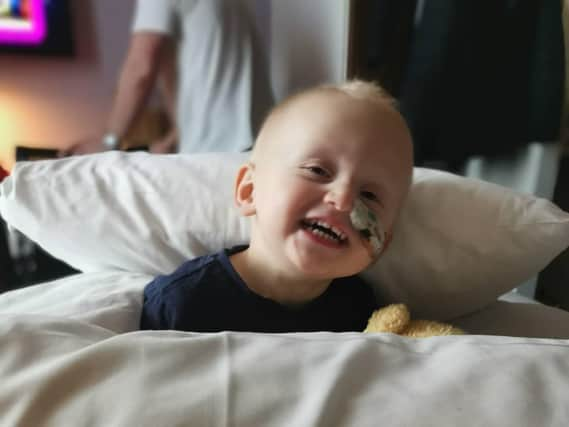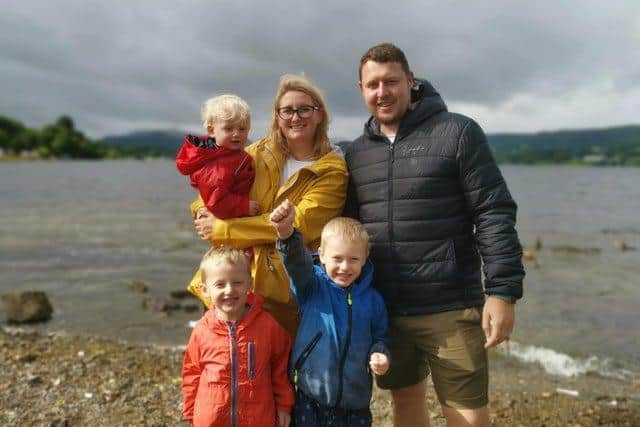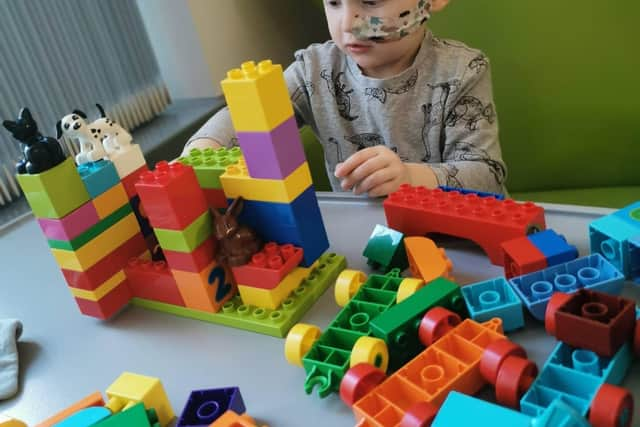'Our little superhero' - family's joy as South Shields toddler fighting rare eye cancer finishes chemotherapy


Ivor Spottiswood’s fight with retinoblastoma, a cancer that only affects around 50 children in the UK each year, has touched the hearts of the town with thousands of pounds raised to help support his family.
The one-year-old’s cancer was spotted during a routine eye test in November last year and he’s since embarked on a gruelling round of chemotherapy at Newcastle’s RVI Hospital, as well as laser therapy at Birmingham Children’s Hospital, in a bid to shrink the five tumours on the back of both of his eyes.
Advertisement
Hide AdAdvertisement
Hide AdIt turned the Laygate family’s world upside down, but the support of the community has got them through. People were so touched by Ivor’s battle that they’ve since donated more than £6,000 to help his family with the regular trips they need to make to Birmingham.


Now they’re celebrating a milestone in his treatment after doctors have said he no longer needs chemotherapy, after the treatment made three of the five tumours inactive. He will continue with laser treatment for the other two tumours.
Mum Jess, 30, who is also mum to Archie, six, and Eli, four, said: “We are so pleased that chemo has come to an end. He had three cycles in total. Although two of the tumours are still active Birmingham Hospital are hopeful that laser surgery might be enough to make them inactive.”
Speaking about the port tube Ivor has to wear to administer medicine, Jess said: “My first question when they said chemo was finished was 'can we get his port out' as this is what we struggle with the most, getting it accessed each week for bloods and then it was the point of access for the chemo.
Advertisement
Hide AdAdvertisement
Hide Ad"But we have to leave it in for at least two more months until his blood count gets back to normal and just in case we have to revisit chemo. Roll on those two months, I can't wait to see it gone.”
Jess, who is married to Gary, says the support through this difficult chapter has been overwhelming. “The amount of support is so overwhelming and hugely appreciated, we are so grateful for everyone’s kind donations, we hope that one day we can do something to show how thankful we are,” said the mum-of-three.
Ivor’s auntie, Georga Spottiswood, set up a JustGiving campaign for her nephew and is taking on a sponsored walk from Lands End to John O'Groats, but because of the pandemic will be doing one of the UK’s biggest walking challenges of 850 miles across 10 months with her daily permitted walks in South Shields
She said: “He has shown such resilience and is our little superhero who always battles on with a smile.
Advertisement
Hide AdAdvertisement
Hide Ad"I want to say a huge thank you to everyone that has donated to my Just Giving Page, to help with the visits to Birmingham Ivor has to make until he is 16. We have hit £6,000 (as people have also donated cash) and we are truly, truly grateful.”


::To donate to Ivor’s page visit https://www.justgiving.com/crowdfunding/georga-spottiswood